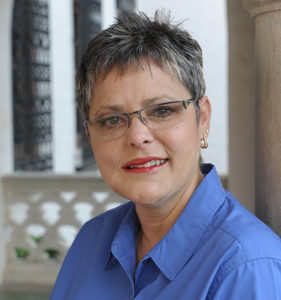• by Nilka Avilés, Ed.D. • IDRA Newsletter • September 2019 •


As a catalyst for change, IDRA has developed best practices to improve effectiveness of principals and their leadership teams. We focus on equipping principals to be visionary leaders, student advocates, instructional leaders, collaborators and risk-taking innovators to improve student achievement. Coaching is the strategy that brings these practices to life.
The aim of leadership coaching is to assist educators to be more effective in transforming low-performing campuses into fully accredited, successful ones. Such leadership coaches embark on an exciting education journey that draws on the courage and character of administrators and leaders as compassionate and caring individuals.
For example, through IDRA’s School TurnAround and Re-energizing for Success (STAARS) Leaders project, we worked with a school district to overcome persistent hurdles in a set of turnaround campuses. After implementing these school leadership coaching best practices for three years, each of the schools succeeded in obtaining full state accreditation for meeting state standards (Avilés, 2018). Five such best practices are outlined below.
1. Select, prepare and certify master teachers as principals of diverse campuses. Master teachers have a proven record of success across student groups. They are ideal candidates to move into administrative roles where they can bolster the leadership competency skills of effective principals for struggling campuses (Wallace Foundation, 2013).
2. Provide professional development for the principal and leadership team to share collective responsibility for systemic effectiveness and student learning. Professional development should focus on underlying pedagogical and institutional changes required to reach equity and excellence and counteract a history of systemic inequalities and oppressive behaviors.
3. Foster an environment where each adult can challenge the status quo and be an agent for social change when needed. It should support leaders to actively interact and collaborate with each other, to implement equitable policies and practices, and to institutionalize curricula and support systems for those who do not have a voice or have been marginalized in decision making. For example, when schools in Mississippi were recently affected by ICE raids, school leaders took immediate steps to care for children and make sure they had a safe place to go after school. (See IDRA’s related infographic “10 Strategies for How Schools Should Respond to Help Children Impacted by ICE Raids.”)
4. Actively support coaching leadership designed to improve systemic effectiveness among the school principal, leadership team and master teachers – individually and as a group. A major responsibility of the coach is to integrate theory into practice by helping leaders with advice and providing alternative solutions for consideration.
5. Invest in human capital, providing support through a schoolwide professional learning community. Participants can support each other in embracing critical elements of a shared vision and values, a mutual responsibility to professional growth, and a focus on student learning through reflective inquiry based on research and best practices.
The leadership team should embrace mutual trust, respect and openness to innovation and ensure leaders partner with students, parents and community stakeholders to embrace a shared vision of success. This requires listening and collaborating in new ways.
Many schools need to build leadership capacity and competencies for success that are congruent with a respect for social and cultural diversity, free of stereotypical biases, and respectful of the civil rights of all students.
Contact IDRA for information on IDRA services to support principals and leadership teams as they transform their campuses to better serve all students in their communities.
Resources
Avilés, N. (September 2018). School Leaders Improve English Learner Literacy with Focus on Inferencing. IDRA Newsletter.
Leithwood, K., Harris, A., & Hopkins, D. (2008). Seven Strong Claims About Successful School Leadership. School Leadership and Management.
Theoharis, G., & Brooks, J.S. (2012). What Every Principal Needs to Know to Create Equitable and Excellent Schools (First edition). New York, N.Y.: Teachers College Press, Columbia University.
Wallace Foundation. (2013). The School Principal as Leader: Guiding Schools to Better Teaching and Learning. The Knowledge Center.
Nilka Avilés, Ed.D., is an IDRA senior education associate and co-directs IDRA’s Re-Energize project. Comments and questions may be directed to her via email at nilka.aviles@idra.org. Hector Bojorquez is IDRA’s director of operations and co-directs IDRA’s Re-Energize project.
[©2019, IDRA. This article originally appeared in the September 2019 IDRA Newsletter by the Intercultural Development Research Association. Permission to reproduce this article is granted provided the article is reprinted in its entirety and proper credit is given to IDRA and the author.]


